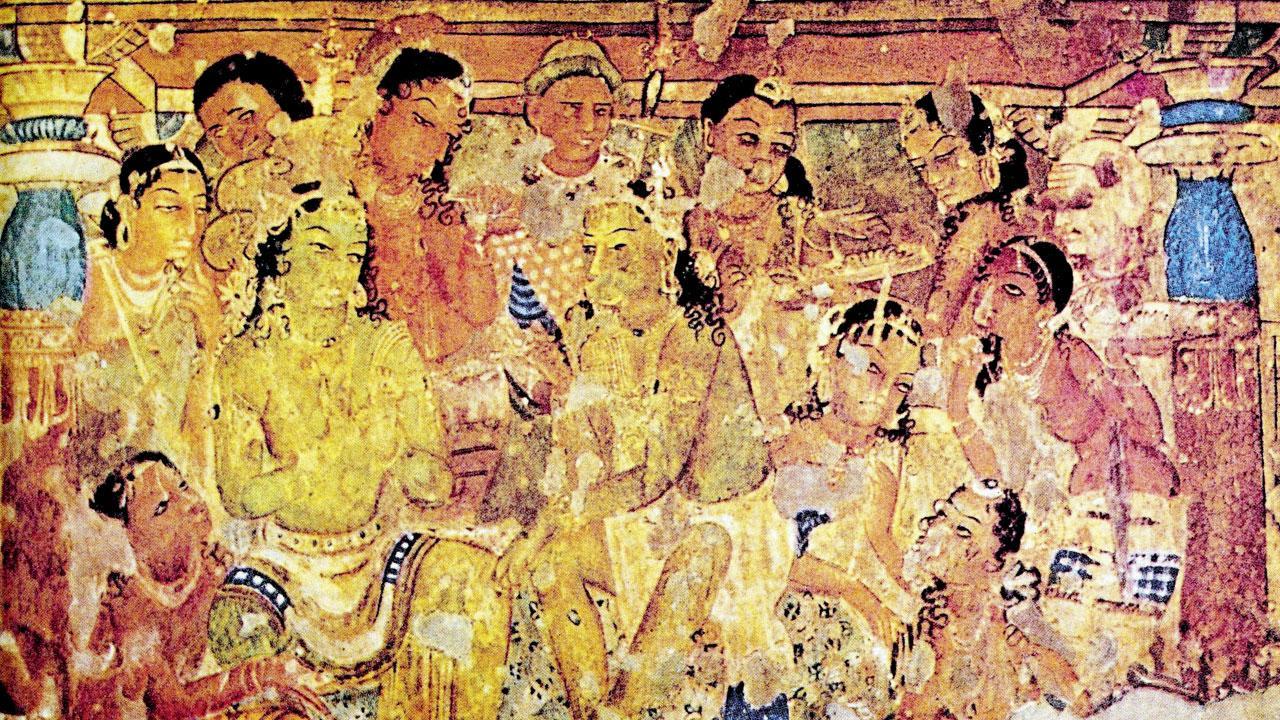Home / Mumbai-guide / Things To Do / Article /
Attend this online workshop on the role of ethology in shaping human psyche
Updated On: 08 February, 2023 10:30 AM IST | Mumbai | Aditi Chavan
Sign up for an online workshop to understand how ethology in Indian folklore has played an important role in shaping human psychology

Murals from the Jataka tales on the walls of the caves at Ajanta
Once upon a time, in a land far, far away, there lived a little girl... In the suburbs of Mumbai, this writer grew up reading Indian folklore such as The Panchatantra and Jataka Tales that began so. But while the stories have faded away from memory, what remain are the lessons they imparted. And Vikram Sridhar, a performance storyteller and theatre practitioner, believes that these stories play a bigger role in developing human psychology than we credit them for. His upcoming online workshop, Ethology in Indian Oral Literature, explores the topic and digs into the connection between humans and ethology.

An illustration in an 18th century Panchatantra manuscript. Pics/Wikimedia Commons



